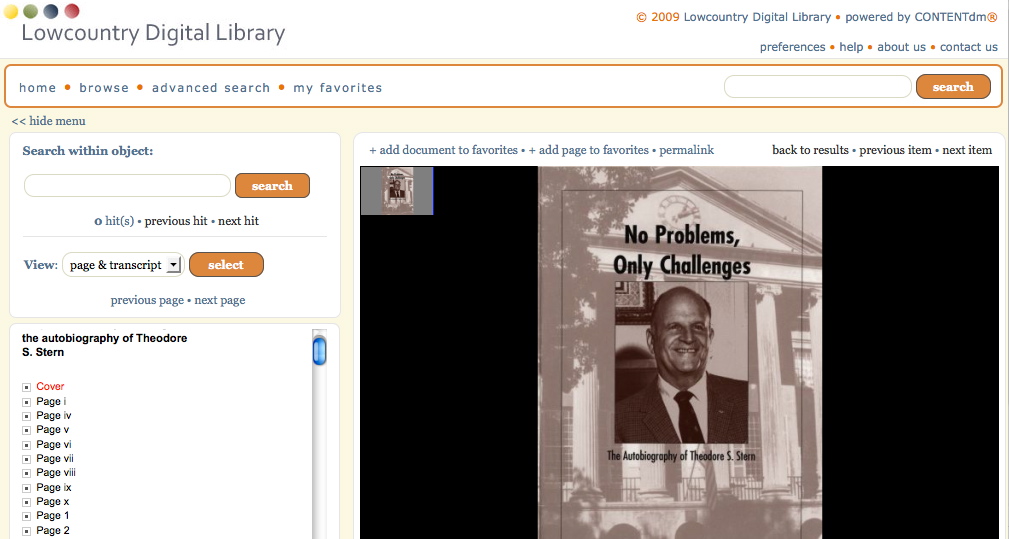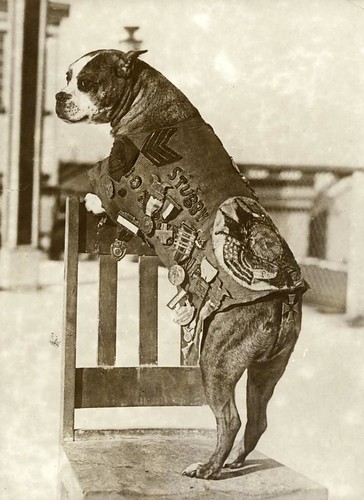In 2001, the library published President Stern’s autobiography, No Problems, Only Challenges. Thanks to the efforts of the Lowcountry Digital Library team, a digital edition is now available and freely available at http://lowcountrydigital.library.cofc.edu/cdm4/document.php?CISOROOT=/CCF&CISOPTR=3874&REC=2.
If you haven’t had a chance to explore the collections available at the Lowcountry Digital Library we encourage you to do so. The Lowcountry Digital Library digitizes and makes accessible unique local resources, providing access to materials that, in the past, required a fieldtrip or were not available at all. In order to provide a well rounded digital collection, the library works with partner institutions in a collaborative manner. Participating institutions include:
- Beaufort County Library
- College of Charleston
- Diocese of Charleston Archives
- Gibbes Museum of Art
- Historic Charleston Foundation
- Medical University of South Carolina
- Patriots Point Naval & Maritime Museum
- South Carolina Historical Society
- The Charleston Archive at Charleston County Public Library
- The Charleston Museum
- The Citadel




